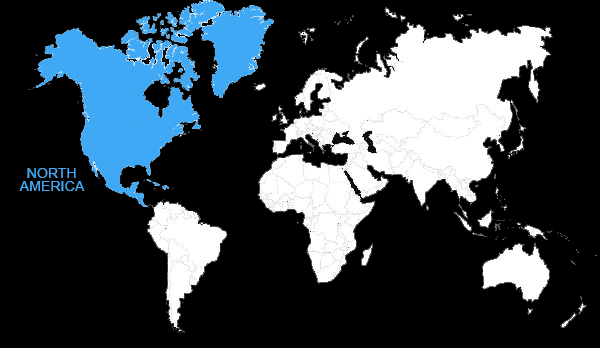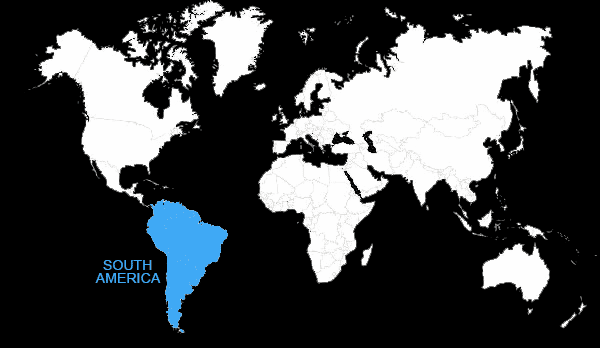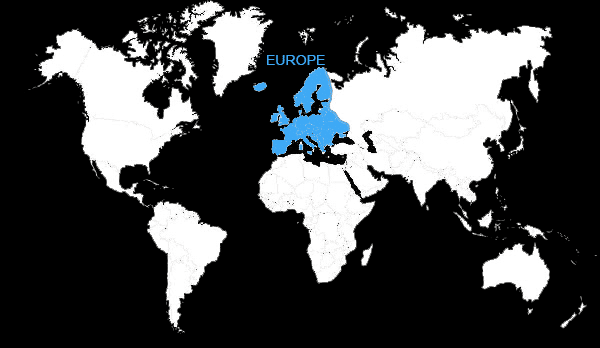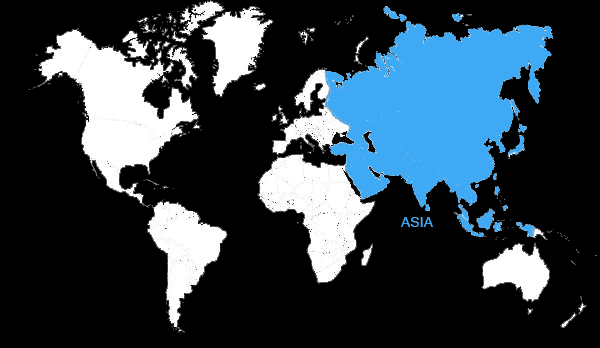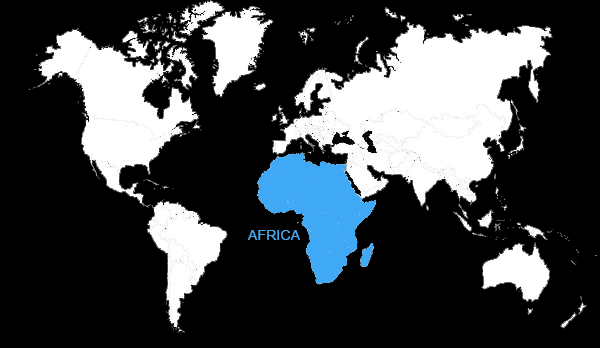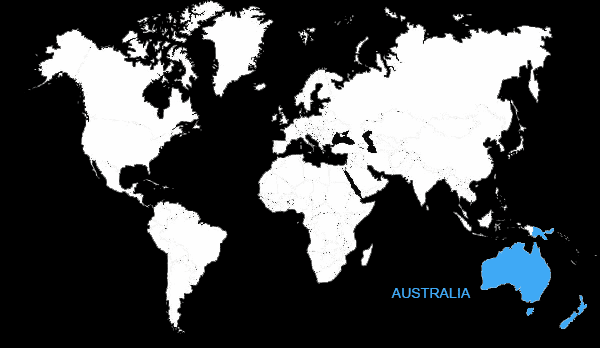FK Partizani Tryouts
FK Partizani Tirana is an Albanian professional football club based in Tirana, Albania. The club currently plays in the Kategoria Superiore, the country’s highest football league in Albania.
FK Partizani Youth Development System
FK Partizani has three academy teams consisting of a U17, U19, and U21.
FK Partizani Recruitment Trials
At the time of this writing, there are no official publishings on FK Partizani trials. Please come back at a later date while we monitor this club or click here to visit their official Facebook page for the latest updates.

EXPLORE MORE CLUBS!
Explore more professional clubs by continent.
FK Partizani History
On February 4, 1946, shortly after the conclusion of World War II and the liberation of Albania, FK Partizani Tirana was formally established as a football club. On the other hand, in 1945, there were two military division teams that competed in the inaugural National Championship following the conclusion of World War II. This took place a year sooner than in 1946. The teams were known as Ylli Shkodr and Liria Korc, and at the conclusion of the season, both of them were dissolved as clubs. At that time, the majority of the finest players from both teams moved to Tirana to play for Ushtria, which literally translates to The Army. On January 13, 1946, Ushtria played their first friendly game against the team that was currently holding the title of Albanian champion, Vllaznia Shkodr. The game was played in Tiran and finished in a goalless draw despite the fact that it took place during a rainstorm. The team played their very first game ever wearing distinctive red shirts with each player’s initials embroidered on the chests of the shirts. In the very first game ever played by the club, Alfred Bonati, Luga, Tepelia, Xhavit Shyqyri Demneri, Besim Fagu, Rexhepi, Lutfi Hoxha, Qamil Teliti, Kavaja, Hamdi Bakalli, and Bylyku were the players who took the field. The next month, on February 4th, Ushtria was transformed into an organized sports club, and it was decided that the club would be called “Partisan” in honor of the Albanian Partisans who had fought for the freedom of the country. In the early years of the club’s existence, they sought out prospective members from the Scanderbeg Military High School and the Albanian Military Academy, in addition to players from other clubs who were compelled to play for Partizani by the Communist party that was in power at the time.
Partizani played their first official match on April 7 against another team from the same city known as 17 Ntori Tiran. This match was the club’s debut under the name Partizani. The starting lineup for Partizani included obani, Tepeli, Muhamet Dibra, Besim Fagu, Kavaja, Osman Pengili, Lutfi Hoxha, Hivzi Sakiqi, Bylyku, and Xhavit Shyqyri Demneri. Osman Pengili and Qamil Teliti scored the goals that led to Partizani’s victory in the match, which they won by The club decided not to compete in the 1946 National Championship, so instead, they went on a tour of Albania and played friendly games against some of the most successful clubs in the country at the time. At the end of their 9-match tour, they finished with 26 goals scored and 9 goals against, and Qamil Teliti scored 11 goals, making him the tour’s leading goalscorer.
Partizani participated in their first national competition for the first time in 1947. In their first season, they were enrolled in the highest level of Albanian football competition and played a total of 16 games, of which they won 14, drew 1, and lost 1. This led to them winning the National Championship in their very first competitive campaign. They ended with 29 points, just one point ahead of Vllaznia Shkodr, who had won the previous two National Championships, and they had a goal difference of 41, as a result of scoring 56 goals and allowing 16 goals. The team that ended up winning the championship was managed by Sllave Llambi and featured players such as Abdulla Strmasi, Kamberi, Ramazan Njala, Besim Fagu, Medo Cuciqi, Sulejman Vathi, Xhavit Shyqyri Demneri, Hivzi Sakiqi, Isuf Pelingu, Tafil Baci, Lutfi Hoxha, Osman Pengili, Ham The Albanian Football Association made the decision to change the format of the championship the following season. They divided the teams competing in the championship into two groups based on their geographical location, with Group A serving as the northern conference and Group B serving as the southern conference. Partizani were assigned to Group A, in which they went on to finish first in the group, tied for points with Vllaznia Shkodr. However, because Partizani had a higher goal difference, they were declared the winners of the group and advanced to the championship final on August 25, 1947, where they faced Flamurtari Vlor. Partizani won the championship match, which took place in Tirana, with a resounding 6–2 scoreline. Goals scored by Vasif Bicaku, Xhevdet Shaqiri, and four goals scored by Zihni Gjinali contributed to the victory, which gave Partizani their second championship in a row. Gjinali also finished the season as the league’s leading goalscorer, tying for the lead with Flamurtari Vlor’s forward Tish Daija, who also scored in the championship game. Gjinali’s goal in the championship game was the game-winning goal. In 1948, the Republic Cup was played again, and Partizani entered the competition for the first time. Not only did they go on to win the competition, but they also secured the first double in the history of Albanian football with their 5–2 victory in the final against their local rivals 17 Nentori Tiran. They finished the following season with a perfect record, which allowed them to keep their hold on the league title, and they also kept the cup after winning the championship match against 17 Nentori Tiran with a score of 1-0.
Despite having a better goal difference, the Albanian Football Association decided to award the title to Dinamo Tirana after using a strange mathematical calculation using goal statistics, which were 77:10 = 7.7 for Partizani and 60:6 = 10.0 for Dinamo. Partizani finished the 1950 National Championship level on points with the newly formed Interior Ministry team Dinamo Tirana. Dinamo Tirana was a team formed by the Albanian Interior Ministry. Partizani came in second place behind their new local rivals Dinamo in the Republic Cup, which marked the beginning of a lengthy period in which both Dinamo and Partizani dominated the sport of football in Albania. This phase lasted for quite some time. The following season, the club finished as runners-up to Dinamo in both the league and the cup, but 19-year-old striker Refik Resmja managed to score 59 goals in 23 games for Partizani, which gave him a goalscoring average of 2.57. This record is considered to be the best ever in top-flight football’s history. Dinamo won both the league and the cup the following season.
Dinamo won the championship once more in 1952 despite the fact that another team finished the season tied with them in points and with a better goal difference than Dinamo did. However, the same peculiar mathematical procedure that was utilized in 1950 was used, and Dinamo was granted the title. The following year, they competed against Dinamo and came in second place in both the league and the cup. The following year, however, they defeated Dinamo and won the league title, which was their first trophy since 1949. In addition, the club came in second place in the Republic Cup in 1954, which was won by Dinamo. After that, they competed in the third unofficial Championship of Communist Countries’ Army Clubs, which was held in Bulgaria. However, they were only able to win one game out of four and lost the other three. They then ended in second place again behind Dinamo Tirana for the subsequent two seasons, which means that Partizani won only one league title in the preceding seven years.
Partizani won the league and cup double in 1957, a feat they accomplished once again in 1958 before competing in the first official Spartakiada, the Championship of Communist Countries’ Army Clubs in East Germany. This victory signaled the return of Partizani as the most powerful club in Albania. They advanced to the championship match by prevailing over The Cong Hanoi of Vietnam, CCA București of Romania, Dukla Prague of Czechoslovakia, and Vorwarts Berlin of East Germany. In the championship match, they will face CDNA Sofia of Bulgaria, who prevailed over Partizani by a score of 1–0 in front of 100,000 spectators at the Leipzig Zentralstadion. They came back to Albania with silver medals and used the experience to win both the league and cup to complete consecutive doubles. The following year, 1959, the cup was not played, thus they just won the league. However, Dinamo won the double in 1960 as Partizani finished as runners up in the league. However, they completed the double themselves the following season and they became the first Albanian club to participate in a European competition in 1962. This occurred as a result of Albania’s Communist leader Enver Hoxha’s falling out with the Soviet Union in 1960, which caused the domestic league formats to be changed in line with Europe’s and Albania no longer excluded themselves from competing in E.U. competitions. Dinamo In the first round of the UEFA European Cup, Partizani played Swedish champions IFK Norrkoping. They were eliminated after losing the first leg, which took place in Norrkoping, by a score of 2-0. In the second leg, which took place in Tirana, they earned a 1–1 draw. However, rocks were thrown onto the field at the end of the match, which resulted in a 3–1 loss for Partizani on the aggregate. They were then drawn against the Bulgarian Spartak Plovdiv side in the European Cup, and they won their first European game in the first leg as they defeated Spartak Plovdiv 1–0 in Tiran, but they were eliminated after losing 3–1 in Plovdiv. During the 1962–1963 campaign, Partizani once again won the league title, and they were then drawn against the Bulgarian Spartak Plovdiv side in the European Cup. Partizani competed in the third official Spartakiada, the second of which included football, held in Vietnam in December 1963, halfway through the season. There, they defeated CDNA Sofia in a rematch of the previous final, as well as Budapest Honvéd of Hungary, and Vorwarts Berlin to reach the semi finals, where they defeated Budapest Honvéd once again to reach the final again. The following season, they completed the double, which would be their last of the communist era. When they competed in the European Cup against the German team 1. FC Koln at the beginning of the following season, they played the first leg of the match in Tirana and tied 0–0; however, when they traveled to Cologne, they were defeated 2–0 and ended up losing the tie overall. Due to the fact that Albania was a Stalinist state at the time, the team from 1. FC Koln got embroiled in a minor diplomatic controversy during the first leg of the match. The incident occurred when it became clear that the West Germans had brought their own food along with a chef to prepare it. 1. In the end, the administrator of Koln, Julius Ukrainczyk, was able to negotiate a settlement with the chef that enabled the food to be brought in but sent the chef home.
Partizani struggled to maintain their dominance at the top of Albanian football after winning their 10th league title in 17 years. They finished as runners up in four of the next five seasons, but they did win three consecutive Republic Cups between 1965 and 1970, despite the fact that the cup was not held for two years during this time period. They competed in the 1968–1969 season of the European Cup Winners Cup and were paired against the Italian team Torino. In Tirana, they prevailed against Torino by a score of 1–0, but they were defeated by a score of 3–1 in Turin, resulting in a loss of 3–2 on aggregate. Following a 1–1 draw in Tiran and a 3–0 awarded win for the second leg, as Beroe withdrew from the competition, they became the first and only Albanian club to win an international competition in 1970. They defeated Beroe Stara Zagora to win the regional 1970 Balkans Cup. This victory made them the first and only Albanian club to win an international competition. Partizani participated in the Cup Winners’ Cup in 1970, and they faced Swedish side Åtvidabergs FF in the preliminary round where the drew 1–1 in Åtvidaberg before winning 2–0 in Tiranë to earn the club its first European tie victory as they moved into the last 16 where they faced Austrian side Wacker Innsbruck. The first leg of the match was played in Innsbruck, where Partizani suffered a 3–2 defeat despite holding a 2–1 advantage at the break. The second leg of the match was played in Partizani’s home stadium, where they suffered a 2–1 defeat; this was their first European home loss in the previous six games. They qualified for the first round of the European Cup, where they were defeated by CSKA Sofia of Bulgaria by a score of 4–0 on aggregate, which was their first trophy since 1964 when they won the National Championship in 1970–71. This was their first win since 1964. They were unsuccessful once again in their attempt to defend their title and had a difficult following season, finishing fourth in the league and being eliminated from the cup in the semi-finals. Despite these setbacks, they were ultimately victorious in the cup competition during the 1972–1973 season and also finished as runners-up in the league. They failed to reach the final of the cup or finish in the top two of the league until 1979, when they managed to win their 11th league title ahead of local rivals KF Tirana. That season, they finished as runners-up in both the league and the cup. The following season, they finished as runners-up in both the league and the cup. After that, in the European Cup, they met the defending champions of Scotland, Celtic, whom they ended up beating 1-0 in Tirana. Celtic needed more than two months to secure visas for their players and staff, and they were unable to acquire visas for a limited number of supporters and the press. Once again, Albania’s communist administration made it impossible for European clubs to come and play in Albania. Partizani’s hopes were dashed when they were defeated in the second match by a score of 4–1, which meant that they were eliminated from the competition with an aggregate score of 4–2.
The next season, Partizani were unable to mount a title challenge at all, as they could only finish in fourth place; nevertheless, they were successful in the cup competition, as they defeated Labinoti Elbasan by a score of 2–1 on aggregate in the final match. They advanced to the Cup Winners Cup and met the Swedish team Malmo FF, whom they ultimately fell to by a score of 1–0 on aggregate after suffering a defeat by the same score in Malmo and playing to a scoreless draw in Tirana. The club defeated Dinamo and KF Tirana to win the National Championship in 1980–1981, which allowed them to qualify for the European Cup. However, they were defeated by Austria Wien, a team from Austria, 3–2 on aggregate after losing the first leg of the match away by a score of 3–1 and then winning the second leg at home by a score of 1–0. It took until 1987 for the club to win their next prize, which was the National Championship. They defeated Flamurtari Vlor to take first place in the competition. They played the Portuguese champions Benfica in the infamous first leg in Lisbon, which resulted in a loss for Partizani (4–0), and they ended the game with only seven players because four of them, including the goalie and captain Perlat Musta, were sent off. As a result of the occurrences, UEFA took disciplinary action against Partizani. As a result, they were kicked out of the competition, and Benfica received a walkover victory in what would have been the second leg. In addition, Partizani was banned from Europe for a period of four years. Partizani’s performance in the 1987–1988 season was their worst ever in the league, as they placed ninth overall. In addition, they were unable to win the cup because they were defeated by Flamurtari Vlor in the championship match. They were able to make up for some of their losses the next year by finishing in second place in the league. This was a feat that they accomplished for the next four years in a row. They participated in the UEFA Cup in 1990, where they were defeated by Universitatea Craiova of Romania. However, they were victorious in the competition the following year, when they defeated Flamurtari in the final. They held the Dutch team Feyenoord to a 0–0 draw in Tirana before losing the match to a late goal in Rotterdam, which resulted in them losing the Cup Winners Cup the following season by a score of 1–0. The match was played in Albania.
The team was able to win their seventh double in their history during the 1992–1993 season, which turned out to be the last truly successful one for the organization. Edmond Dosti became Partizani’s first league top goalscorer since Agim Murati in 1979 during the season when they won the Kategoria Superiore, and they also won the Albanian Cup after defeating Albpetrol Patos in the final. Both of these victories came in the same year. Following their triumph in the double tournament, Partizani competed in the preliminary round of the European Cup against the Icelandic team A Akranes. In the first leg, which took place in Tiran, they were able to gain a goalless draw. However, in the second leg, which took place in Akranes, they were defeated 3–0. All three goals were scored in the second half. After the fall of communism in Albania, clubs had a difficult time sustaining themselves financially, and Partizani had been highly dependent on the backing of both the communist regime and the Albanian Army. The collapse of communism made it challenging for Partizani to continue operating as a club, which in turn led to difficulties for the organization during the subsequent twenty years.
Despite having won the double in 1993, Partizani’s power began to wane the following year, and in 1994, millionaire Albert Xhani purchased the club and became its new owner. Partizani were given a place in the UEFA Cup as the third-placed team because Teuta Durr had finished second in the league and won the cup. In 1995, they played Turkish side Fenerbahce, whom they lost to 6–0 on aggregate as they struggled against far better opponents. Partizani continued to have difficulty competing domestically, and their only victory to date came in 1997 when they took home the trophy for the Albanian Cup. The club’s fortunes continued to deteriorate, and they discovered that they were in the last place in the league. As a result, the club ultimately experienced relegation for the first time in its existence at the conclusion of the 1999–2000 season. They only had to play in the Albanian First League for one year because they were champions of their division and advanced automatically on their first try. During their first season back in the top flight, they managed to finish in a respectable third place, which qualified them for the UEFA Cup. There, they were drawn against the Israeli side Hapoel Tel Aviv, and they ended up losing to them 5–1 on aggregate, which meant that they were eliminated from the competition.
Igli Tare was widely regarded as one of the greatest players in the annals of Partizani Tirana’s illustrious past.
The following season, they finished third once again, and they also advanced to the quarterfinals of the Albanian Cup. They qualified for the Intertoto Cup, where they were once again drawn against Israeli opposition in the form of Maccabi Netanya. Although they were defeated by Maccabi Netanya by a score of 3–1 in the first leg of their matchup, they defeated them by a score of 2–0 in the second leg in Tirana to advance to the next round of a European competition for Their journey in the Intertoto Cup came to an end when they were eliminated in the following round by the Moldovan side Dacia Chişinău, to whom they suffered a loss by a score of 5–0 on aggregate. Domestically, they were able to finish in fourth place, behind Vllaznia Shkodr by only one point, and they also managed to win the Albanian Cup. This was the first major trophy won by the club in 11 years, other than the Albanian First Division. Partizani were eliminated from the UEFA Cup the following season after being drawn against Maltese side Birkirkara, whom they defeated 4–2 in the first leg at home in Tirana, and despite losing 2–1 in the away leg, they still managed to qualify for the next round, where they met Israeli side Hapoel Bnei Sakhnin, who defeated Partizani 6–1 on aggregate to eliminate them, following losses of 3–0 and 3–1 both Partizani had a difficult time competing in the league during the 2004–2005 season, and they ended up being third from last. Despite this, they were not in imminent danger of being demoted because they finished 22 points above the zone that marked the relegation zone. They were eliminated from the competition in the semi-finals of the cup by the eventual champions, Teuta Durrs, due to the fact that they were eliminated due to the away goal rule following an aggregate tie of 2–2. The next year, they saw notable improvements in their play and finished in fourth place, just two points behind its regional adversaries KF Tirana in second place. In addition, they advanced to the quarterfinals of the cup competition. Partizani defeated Cypriot side Ethnikos Achna 2–1 in Tirana but fell to them 4–2 in Achnas, resulting in a 5–4 loss for Partizani in the aggregate score in the Intertoto Cup. Partizani qualified for the Intertoto Cup once again. The club finished in fourth place once again during the 2006–2007 season, and they were also eliminated from the running for the final of the Albanian Cup due to the away goal rule, despite having played to a 1–1 aggregate draw with Teuta Durrs. The following year, Partizani competed for the championship alongside their city’s other major team, Dinamo Tirana, but they were unable to claim the league championship. Instead, they finished the season 5 points behind Dinamo and secured their position as league runners-up for the 19th time.
Partizani qualified for the UEFA Cup following a successful season and played against the Bosnian side Iroki Brijeg in the first qualifying round. However, they were ultimately defeated by a score of 3–1 on aggregate, which marked the beginning of what would turn out to be a very challenging season. They struggled in the league and only avoided the automatic relegation zone by a single goal on goal difference. They did, however, face Kastrioti Kruj in a relegation play-off that resulted in Partizani’s relegation once again. The match was plagued by poor refereeing decisions as well as violence on both sides of the field. During the 2009–10 season, Partizani played in the Albanian First Division. At the same time, the club’s president, Albert Xhani, started to pull back from financially supporting the club. As a result, the majority of wages were not paid for the season. During the winter break, Paro Laci and Lulzim Sallaku bought out 40% and 10% of the club’s shares, respectively, with Xhani retaining the remaining 50% of the club’s shares. Laci was able to take control of the majority of the club’s funds, and salaries were paid to the coaching staff as well as the players; but, despite their best efforts, the team was unable to reach the play-off positions and ended up finishing in fourth place in the league. As a result of the club’s relegation to the Albanian Second Division, the third tier, for the first time in their history during the 2010–11 season, it would turn out to be the worst season in the history of the club. This was the club’s second time being demoted in as many years. The team ended last in the standings of the First Division with a record of 4 wins, 5 draws, and 21 losses. In their 30 matches, they managed to score a grand total of only 16 goals. Partizani were able to secure their promotion and a spot in the championship final against Tarbuni Puk on May 17, 2012, despite suffering a defeat at the hands of the latter by a score of three goals to one. This accomplishment was made possible by the fact that they finished first in Group B by a single point during their sole season in the Second Division. The club’s return to the First Division would prove to be a successful one as they finished as runners up behind KF Lushnja to achieve back to back promotion. This accomplishment came in a season that saw the club change ownership as Gazment Demi bought out 50% of the club’s shares in January 2013, making him and Lulzim Sallaku co-owners and co-financiers of the club. The club’s return to the First Division would prove to be a successful one as they finished as After a hiatus of four years, the club earned promotion back into the Kategoria Superiore, and Demi assumed the role of president after Sallaku stepped down from his previous role.
Under the guidance of head coach Sknder Gega, Partizani won the Kategoria Superiore for the first time in 26 years, bringing the club back to the UEFA Champions League after an absence of three years. This victory came after Partizani had gone winless in the competition for the previous five seasons.
FK Partizani Stadium
Arena Kombtare is an all-seater, multi-purpose football stadium located in the capital city of Tirana. It was built on the territory of the former Qemal Stafa Stadium. The stadium is the largest in Albania with a capacity of 21,690 seats, making it the largest stadium in the country.

Early in the history of the club, its home matches were played at the Qemal Stafa Stadium, which is the primary stadium in Albania. At the time, the stadium was shared with the club’s local rivals, KF Tirana, and later Dinamo Tirana. A second stadium, known as the Selman Strmasi Stadium, was constructed in Tirana in the year 1956. This stadium, like the first, was used by all three of the city’s most prominent sports teams. When the team was re-instated to the Kategoria Superiore in 2014, they were no longer required to share the Selman Strmasi Stadium. In the summer of 2016, the process of dismantling the Qemal Stafa Stadium will begin in order to make room for the proposed 22,500-seat Arena Kombtare.
On March 9, 2016, the Albanian government reached an agreement to lease the 37,000-square-meter (400,000-square-foot) Military Base 4030, which is located on Myslym Keta Road on the outskirts of Tiran. This is the location where Partizani will build their new training facility as well as their proposed 4,500 seater stadium. The lease is for a period of 99 years and costs €1.
During a meeting with FK Partizani and FK Tirana, the mayor of Tirana granted Partizani the right to play in Tirana’s stadium until the “Qemal Stafa Stadium” is completed.
In 2019, Partizani relocated into the brand new Arena Kombtare that had just been constructed. They played their debut match at the new stadium on the 13th of December 2019, and their opponents were rivals KF Tirana, who also play part of their matches at the stadium. They were defeated by a score of 2–1 after a goal scored by Winful Cobbinah in the final minute of the game. This was the first time that the club had been defeated in a derby after 5 years and 8 months of competition and after 18 games.


